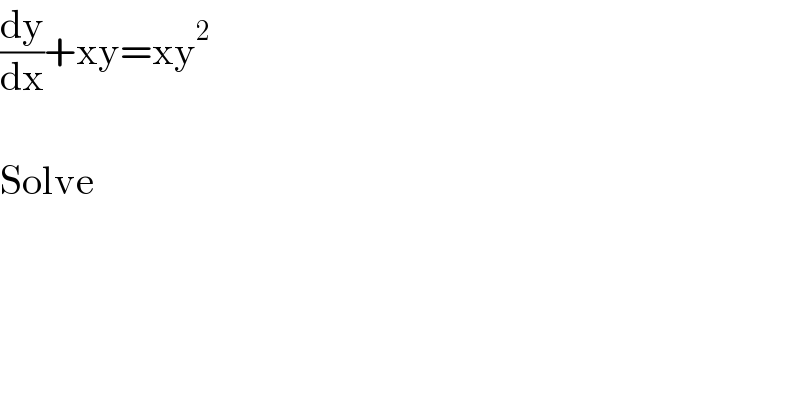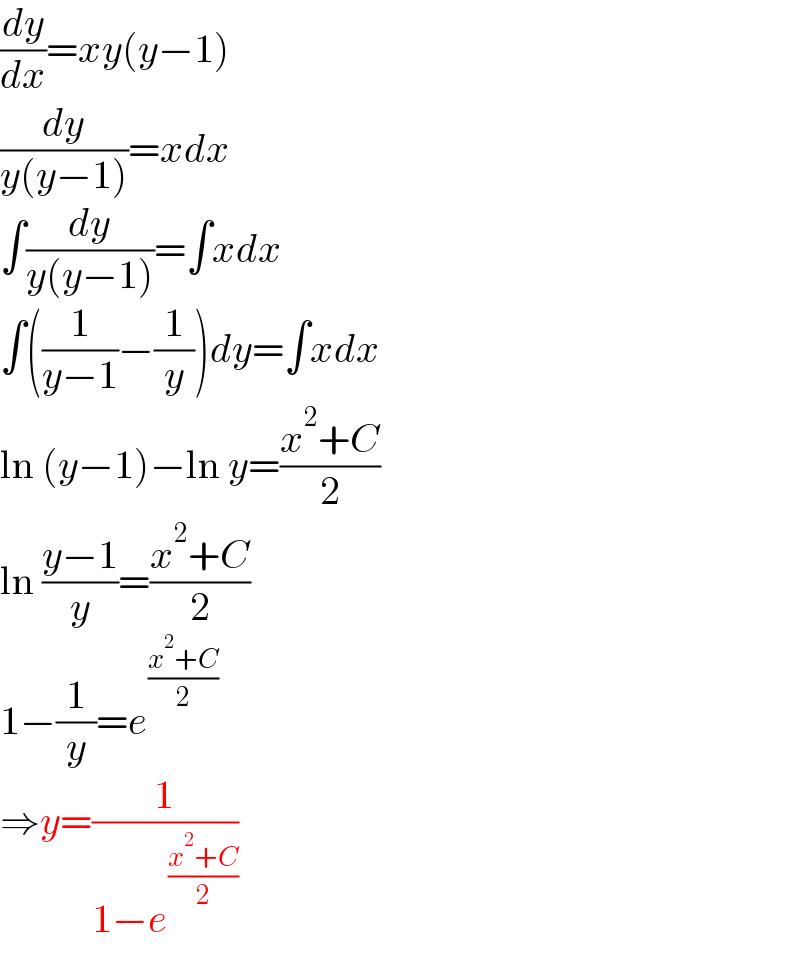
Question Number 181743 by Mastermind last updated on 29/Nov/22

$$\frac{\mathrm{dy}}{\mathrm{dx}}+\mathrm{xy}=\mathrm{xy}^{\mathrm{2}} \\ $$$$ \\ $$$$\mathrm{Solve} \\ $$
Answered by mr W last updated on 29/Nov/22

$$\frac{{dy}}{{dx}}={xy}\left({y}−\mathrm{1}\right) \\ $$$$\frac{{dy}}{{y}\left({y}−\mathrm{1}\right)}={xdx} \\ $$$$\int\frac{{dy}}{{y}\left({y}−\mathrm{1}\right)}=\int{xdx} \\ $$$$\int\left(\frac{\mathrm{1}}{{y}−\mathrm{1}}−\frac{\mathrm{1}}{{y}}\right){dy}=\int{xdx} \\ $$$$\mathrm{ln}\:\left({y}−\mathrm{1}\right)−\mathrm{ln}\:{y}=\frac{{x}^{\mathrm{2}} +{C}}{\mathrm{2}} \\ $$$$\mathrm{ln}\:\frac{{y}−\mathrm{1}}{{y}}=\frac{{x}^{\mathrm{2}} +{C}}{\mathrm{2}} \\ $$$$\mathrm{1}−\frac{\mathrm{1}}{{y}}={e}^{\frac{{x}^{\mathrm{2}} +{C}}{\mathrm{2}}} \\ $$$$\Rightarrow{y}=\frac{\mathrm{1}}{\mathrm{1}−{e}^{\frac{{x}^{\mathrm{2}} +{C}}{\mathrm{2}}} } \\ $$
